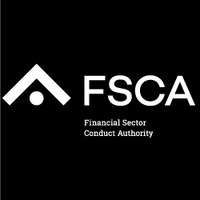Who are the Financial Sector Conduct Authority?
The Financial Sector Conduct Authority (FSCA) is the governmental authority in South Africa that ensures that service providers and operators are adhering to the laws set out in the Financial Sector Regulation Act 9.
The FSCA replaced the Financial Services Board (FSB) in 2018, and was given the mandate to protect the integrity and efficiency of the financial markets in South Africa. The rules of the Financial Sector Regulation Act dictate that the FSB has complete authority over banking, credit providers, and forex brokers and exchanges that buy and sell foreign currency.
The main objective of the FSCA is to protect the interests of financial customers and investors, while ensuring that the robust regulatory strategy is adhered to and that those who don’t comply are punished accordingly – it has a broad range of disciplinary powers at its disposal.
Regulatory areas and powers
Pretty much every organisation that can be described as a ‘financial institution’ is covered by the remit of the FSCA, from banks and collective investment schemes (CIS) to investment managers and financial advisers.
It’s not just those who offer financial products and services that are monitored by the FSCA, but also those who offer advice regarding investments in foreign currency, commodities and the like.
The FSCA has the power to act when a foreign exchange service provider is held to be operating in a way that is unfair to its customers, and especially when it is failing to adhere to the rules of the Currency and Exchanges Act. It also works closely with the South African Reserve Bank’s Financial Surveillance Department to keep a very close eye on foreign exchange dealing.
The FSR Act dictates that many financial entities and institutions must also be licensed to operate in the market, and ultimately it is the FSCA that regulates and supervises all of its licence holders – it can use the full remit of disciplinary powers outlined in the FSR Act where necessary.
In addition to its work at a domestic level, the FSCA also functions as a part of a number of international groups, with an eye on improving the standards of the financial services sector. These include the International Organisation of Securities Commissions (IOSCO), the Financial Action Task Force (FATF) and the International Financial Consumer Protection Organisation (FinCoNet).
How to check if a broker is regulated by the Financial Sector Conduct Authority
There is a very useful table of nominees and licensed operators that can be found at https://www.fsca.co.za/MagicScripts/mgrqispi.dll?APPNAME=Web&PRGNAME=Nominees. These are all regulated by the FSCA, and this acts as a register of the firms that should be considered when deciding which broker to invest with – if a broker doesn’t appear here, it is recommended to avoid it.
If a broker or a foreign exchange service provider does not appear in this entity search, then it is well worth contacting the FSCA directly to see if it has any background information on the operator in question.
Making a complaint
To make a complaint against an operator, whether it is licensed by the FSCA or not, visit this link: https://www.fsca.co.za/MagicScripts/mgrqispi.dll?APPNAME=Web&PRGNAME=Complaints2.
This will then be sent directly to the FSCA’s investigations team, and the matter will be dealt with promptly and anonymously. A complaint can also be made against the FSCA via the same method.
To make a tip-off or join the whistleblower programme, it is possible to find all of the information that’s needed here: https://www.whistleblowing.co.za/make-a-report-steps/.
